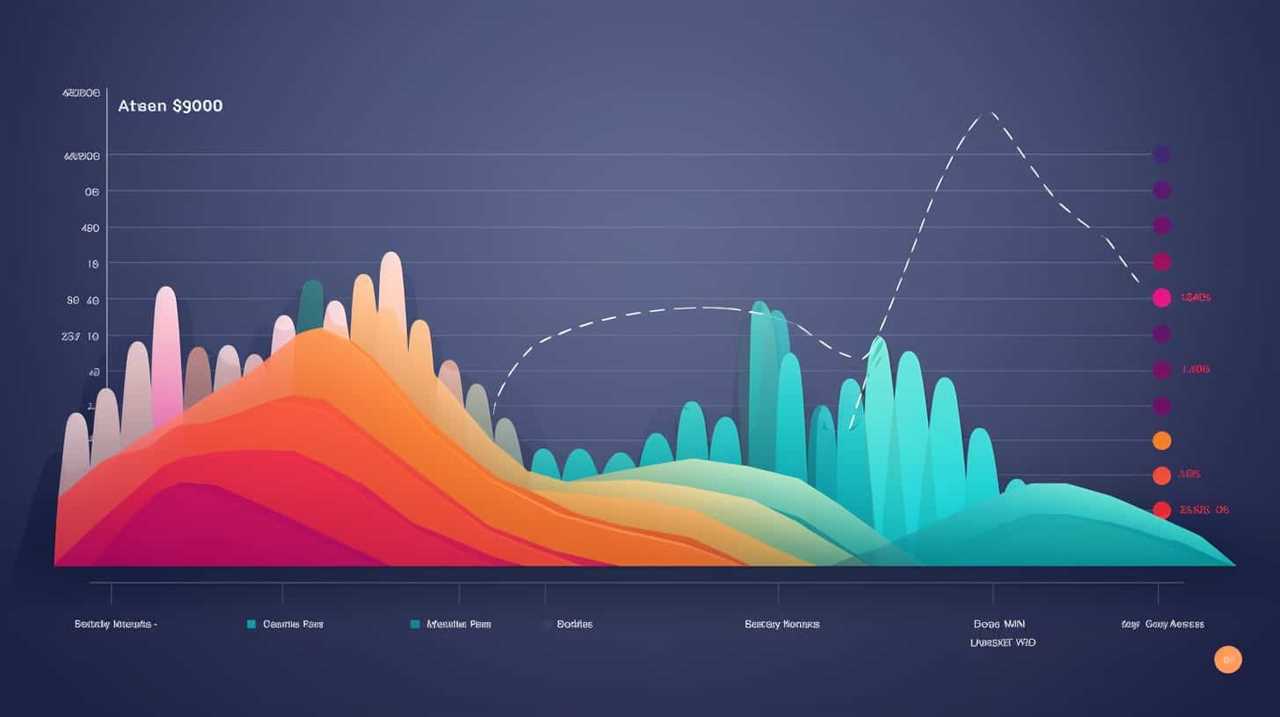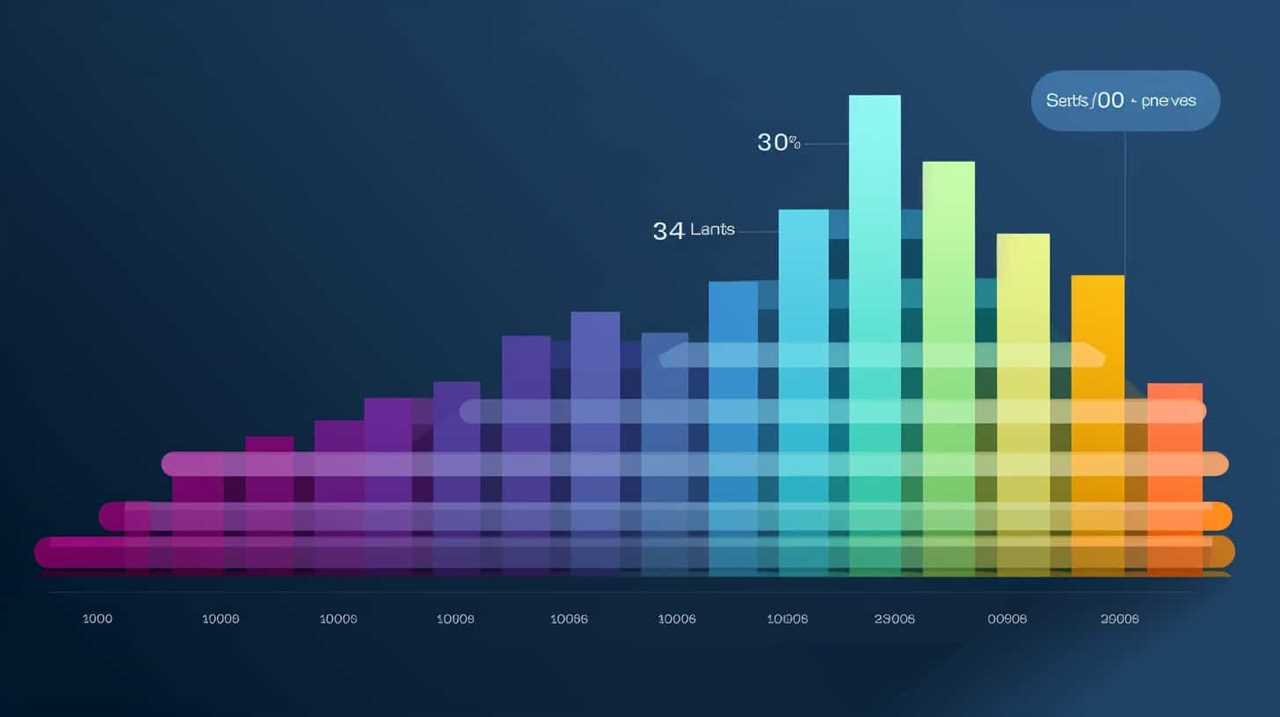Our research shows that 61% of marketers consider SEO crucial for their success in the digital realm. Thus, if you aim to excel at SEO, you’ve arrived at the right place.
In this article, we’ll explore the most effective techniques and tools to boost your website’s visibility and drive organic traffic. From on-page optimization and keyword research to link building strategies and local SEO techniques, we’ve got you covered.
Get ready to take your SEO game to the next level!
Key Takeaways
- On-Page SEO Optimization: Focus on website design, user experience, and well-optimized website design for better SEO.
- Keyword Research and Analysis: Select relevant keywords, analyze keyword competition, and understand the importance of keyword research for website visibility.
- Link Building Strategies: Engage with authoritative websites, leverage guest blogging opportunities, utilize broken link building, and conduct influencer outreach to enhance website visibility and authority.
- Technical SEO Audit: Conduct a comprehensive audit to evaluate site speed, mobile-friendliness, URL structure, and indexing issues, in order to improve visibility and rankings.
On-Page SEO Optimization
What are the key factors to consider for effective on-page SEO optimization?

When it comes to on-page SEO optimization, website design and user experience optimization are crucial factors to consider. A well-designed website with a user-friendly interface enhances the overall user experience, making it easier for visitors to navigate and find what they’re looking for. This not only improves user satisfaction but also increases the chances of conversions and engagement.
Additionally, a well-optimized website design ensures that search engines can easily crawl and index your content, improving your website’s visibility in search engine results. When optimizing your website for on-page SEO, make sure to focus on factors such as page load speed, mobile responsiveness, intuitive navigation, and high-quality content.
Keyword Research and Analysis
When it comes to SEO, keywords play a crucial role in optimizing your website’s visibility. Selecting relevant keywords is essential to ensure that your content aligns with what users are searching for.
Additionally, analyzing keyword competition allows you to understand the level of difficulty in ranking for certain keywords and helps you make informed decisions about your SEO strategy.

Importance of Keywords
One of the key aspects in SEO is conducting keyword research and analysis to identify the most effective keywords for optimizing website content. This process is crucial as it helps us understand the language and terms that our target audience uses when searching for information online. By conducting thorough keyword research, we can uncover valuable insights that can inform our content creation strategy.
Here are three reasons why keyword research and analysis is important:
- Keyword density: By analyzing keywords, we can determine the optimal keyword density to use in our content. This helps search engines understand the relevance of our pages and rank them accordingly.
- Long tail keywords: Researching long tail keywords allows us to target specific, niche topics that have less competition. This can help us attract more targeted traffic and increase the chances of conversion.
- Competitor analysis: By analyzing the keywords used by our competitors, we can identify opportunities for improvement and gain a competitive edge in the market.
Relevant Keyword Selection
To continue our discussion on relevant keyword selection (keyword research and analysis), let’s delve into how we can effectively identify the most valuable keywords for optimizing our website content. One important aspect of keyword research is understanding keyword density, which refers to the number of times a keyword appears in a piece of content compared to the total word count. This helps search engines determine the relevance of the content to a particular keyword. Another strategy is to focus on long tail keywords, which are specific and longer phrases that target a niche audience. These keywords often have lower competition and higher conversion rates. To give you a better understanding, here’s a table that illustrates the concept:
| Keyword | Monthly Searches |
|---|---|
| SEO | 10,000 |
| SEO techniques | 1,000 |
| SEO tools | 5,000 |
| Advanced SEO | 500 |
Now that we have identified valuable keywords, let’s move on to the next step: analyzing keyword competition.

Analyzing Keyword Competition
Now, let’s dive into analyzing keyword competition to determine the best SEO techniques and tools for optimizing our website content.
To effectively analyze keyword competition, we need to perform two key activities: keyword difficulty analysis and competitor keyword analysis.
- Keyword Difficulty Analysis: This involves assessing the level of competition for a particular keyword. We can use various tools to determine the difficulty of ranking for a keyword, such as keyword research tools, SEO software, or search engine ranking tools. By understanding the difficulty level, we can prioritize our efforts and focus on keywords with higher potential for success.
- Competitor Keyword Analysis: It’s crucial to analyze the keywords that our competitors are targeting. By doing so, we can identify gaps and opportunities in the market. We can use tools like competitor analysis tools, keyword research tools, or SEO software to gather insights into the keywords our competitors are ranking for and their search volume. This information can guide our keyword strategy and help us stay ahead of the competition.
- Continuous Monitoring and Adaptation: Keyword competition isn’t static; it evolves over time. It’s essential to regularly monitor keyword rankings, analyze changes in competitor strategies, and adapt our approach accordingly. By staying informed and flexible, we can continually optimize our website content and improve our search engine rankings.
Analyzing keyword competition is a crucial step in developing effective SEO techniques and tools for our website. By conducting thorough keyword difficulty analysis and competitor keyword analysis, we can make informed decisions and stay ahead in the competitive SEO landscape.
Content Creation and Optimization
We actively optimize our website’s content using various techniques and tools to ensure its relevance and visibility. Content creation plays a crucial role in attracting and engaging our target audience. By promoting high-quality, informative, and valuable content, we can increase our website’s visibility in search engine results pages (SERPs) and drive organic traffic. Additionally, we focus on creating SEO-friendly website designs that enhance the user experience and make it easier for search engines to crawl and index our pages. This includes optimizing our website’s structure, navigation, and URL structure. By incorporating relevant keywords, meta tags, and header tags, we can improve our website’s search engine rankings. Furthermore, we regularly analyze and optimize our content based on keyword research, user intent, and industry trends to ensure that our website remains relevant and competitive.

| Techniques | Tools | Benefits |
|---|---|---|
| Keyword research | Google Keyword Planner, SEMrush | Identify relevant keywords and search terms |
| On-page optimization | Yoast SEO, Moz | Optimize content for search engines |
| Link building | Ahrefs, Moz | Increase website authority and visibility |
Link Building Strategies
One effective link building strategy is to actively engage with authoritative websites in our industry. By building relationships with these websites, we can establish ourselves as trusted sources and gain valuable backlinks.
Here are three key strategies for successful link building:
- Guest blogging opportunities: By contributing high-quality content to other websites in our industry, we can showcase our expertise and earn backlinks to our own site. This not only helps with SEO but also exposes our brand to a wider audience.
- Broken link building: This strategy involves finding broken links on authoritative websites and reaching out to the site owners to suggest replacing the broken link with a link to our own relevant content. This can be a win-win situation for both parties involved.
- Influencer outreach: Connecting with influencers in our industry and collaborating on content can help us gain exposure and earn valuable backlinks. By leveraging the reach and authority of influencers, our link building efforts can be significantly amplified.
Implementing these strategies can greatly enhance our website’s visibility and authority, ultimately boosting our SEO efforts.
Technical SEO Audit
To continue our exploration of SEO techniques and tools, let’s delve into the crucial aspect of conducting a comprehensive technical SEO audit.

A technical SEO analysis, also known as an SEO website audit, is an essential process for ensuring the health and effectiveness of your website. It involves evaluating various technical aspects of your site, such as site speed, mobile-friendliness, URL structure, and indexing.
By conducting a technical SEO audit, you can identify and address any issues that may be hindering your site’s performance in search engine rankings. This analysis helps search engines crawl and index your site more effectively, leading to improved visibility and higher rankings.
Furthermore, a thorough technical SEO audit can provide valuable insights into potential opportunities for optimization, ensuring that your website is in top shape and ready to attract organic traffic.
SEO Tools for Competitor Analysis
When it comes to conducting competitor analysis for SEO, we can’t underestimate the power and effectiveness of using SEO tools. These tools provide valuable insights into our competitors’ strategies and help us make informed decisions to improve our own SEO efforts.

Here are three essential competitor analysis tools that every SEO professional should have in their toolkit:
- SEMrush: This tool allows us to analyze our competitors’ organic search rankings, paid search campaigns, and backlink profiles. We can identify their top performing keywords, uncover their ad strategies, and discover their most valuable backlinks.
- Ahrefs: With Ahrefs, we can dive deep into our competitors’ backlink profiles. We can identify their strongest backlinks, uncover new link building opportunities, and analyze their anchor text distribution.
- Moz Pro: Moz Pro provides comprehensive competitor analysis reports, including domain authority, page authority, and link metrics. We can compare our website’s performance against our competitors, identify gaps in our SEO strategy, and uncover opportunities for improvement.
Local SEO Techniques
When it comes to improving local search rankings, there are two key techniques that can make a big difference.
First, citations for local businesses are crucial. These are mentions of your business name, address, and phone number on other websites, directories, and social media platforms.
Second, optimizing your Google My Business listing is essential. This involves providing accurate and up-to-date information about your business, including your address, phone number, website, and hours of operation.

Citations for Local Businesses
Local businesses can benefit from citations as part of their local SEO strategy. Citations are mentions of a business’s name, address, and phone number (NAP) on other websites. They play a crucial role in improving a business’s visibility in local search results.
Here are three citation building strategies that can help local businesses boost their online presence:
- Submitting to online directory listings: Online directories like Google My Business, Yelp, and Yellow Pages are excellent platforms for businesses to create citations. These directories have high domain authority and attract a large number of users, which can increase a business’s online visibility.
- Consistency is key: It’s important to ensure that the NAP information is consistent across all citations. Inaccurate or inconsistent NAP data can confuse search engines and negatively impact a business’s local search rankings.
- Building quality citations: Focus on obtaining citations from reputable and relevant websites. This can be achieved through outreach to industry-specific directories, local chambers of commerce, or partnerships with other local businesses.
Google My Business Optimization
To optimize Google My Business for local SEO, we focus on enhancing our online presence and attracting more customers to our physical locations. One of the key aspects of Google My Business optimization is verifying our business listing. This process involves providing Google with accurate information about our business, such as our address, phone number, and website.
Once verified, our business will appear in Google Maps and local search results, increasing our visibility to potential customers. Another important aspect is managing and responding to Google My Business reviews. Positive reviews not only build trust with potential customers but also improve our search rankings. By engaging with our customers and addressing any concerns or issues, we can enhance our reputation and attract more customers.

Now, let’s move on to the next topic of mobile optimization for SEO.
Mobile Optimization for SEO
In our experience, optimizing for mobile is essential in achieving successful SEO results. With the rise of smartphones and the increasing number of users accessing the internet through their mobile devices, neglecting mobile optimization can be detrimental to your website’s visibility and rankings.
To ensure your mobile SEO efforts are effective, consider these three key areas:
- Mobile Speed Optimization: Mobile users expect fast-loading websites. Improve your site’s loading speed by optimizing images, minimizing code, and leveraging caching techniques.
- Voice Search Optimization: As voice search continues to gain popularity, optimizing your content for voice queries is crucial. Use conversational language, long-tail keywords, and provide concise answers to common questions.
- Responsive Design: Make sure your website is mobile-friendly and provides a seamless user experience across all devices. Opt for responsive design that adapts to different screen sizes and resolutions.
SEO Reporting and Analytics
For accurate and comprehensive insights into our SEO performance, we rely on robust reporting and analytics tools. These tools allow us to measure the effectiveness of our SEO strategies, identify areas for improvement, and track our progress over time. By analyzing key metrics such as organic traffic, keyword rankings, and conversion rates, we can make data-driven decisions to optimize our website and content for better search engine visibility.

To illustrate the importance of SEO reporting and analytics, let’s take a look at a comparison table of popular SEO reporting tools:
| Tool | Features | Pricing |
|---|---|---|
| Google Analytics | Traffic analysis, goal tracking | Free |
| SEMrush | Keyword research, competitor analysis | Starts at $99.95/month |
| Moz Pro | Rank tracking, link analysis | Starts at $99/month |
| Ahrefs | Backlink analysis, keyword research | Starts at $99/month |
These tools provide valuable insights into our SEO performance and help us make informed decisions to drive organic traffic and improve our website’s visibility in search engine results pages.
Frequently Asked Questions
How Long Does It Typically Take to See Results From On-Page SEO Optimization?
Typically, it takes some time to see results from on-page SEO optimization. Best practices for on-page SEO include optimizing content, meta tags, and headings. Patience and consistent efforts are key.
What Are the Key Factors to Consider When Conducting Keyword Research and Analysis?
When conducting keyword research and analysis, we consider competitor analysis to stay ahead. It’s like navigating a maze, finding the best long tail keywords that unlock the door to success.

How Can I Optimize My Content to Improve Its Visibility on Search Engines?
To optimize our content for better search engine visibility, we focus on two key factors. First, we prioritize content creation by producing engaging and informative materials. Second, we enhance user experience by improving website usability and navigation.
Are There Any Link Building Strategies That Should Be Avoided?
There are definitely link building strategies that should be avoided, especially when it comes to ethics. Using black hat techniques can harm your website’s reputation and visibility on search engines.
What Are Some Common Technical SEO Issues That Can Negatively Impact Website Rankings?
Some common technical SEO issues that can negatively impact website rankings include slow website loading speed and lack of mobile optimization. These factors can affect user experience and search engine visibility.
Conclusion
In conclusion, implementing effective SEO techniques and utilizing the right tools are vital for online success.

Just as a skilled gardener carefully tends to their garden, optimizing on-page elements, conducting keyword research, creating quality content, building strong links, conducting technical audits, and utilizing competitor analysis tools are like nurturing and nourishing your website.
By doing so, you can cultivate a flourishing online presence that attracts and engages your target audience, leading to increased visibility, traffic, and conversions.









